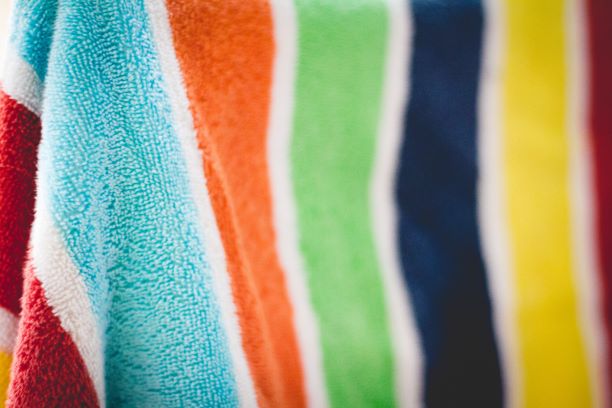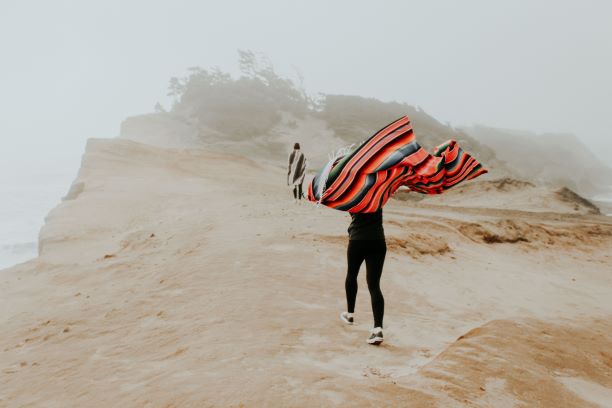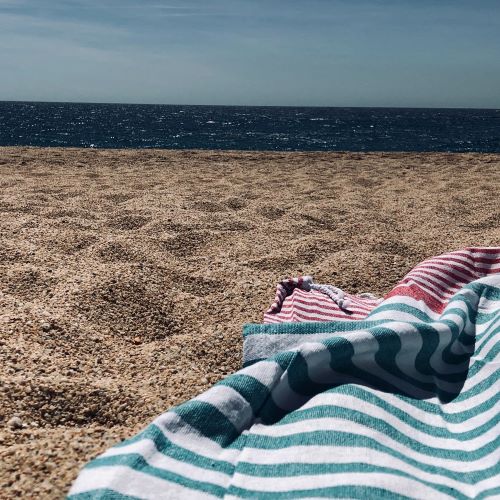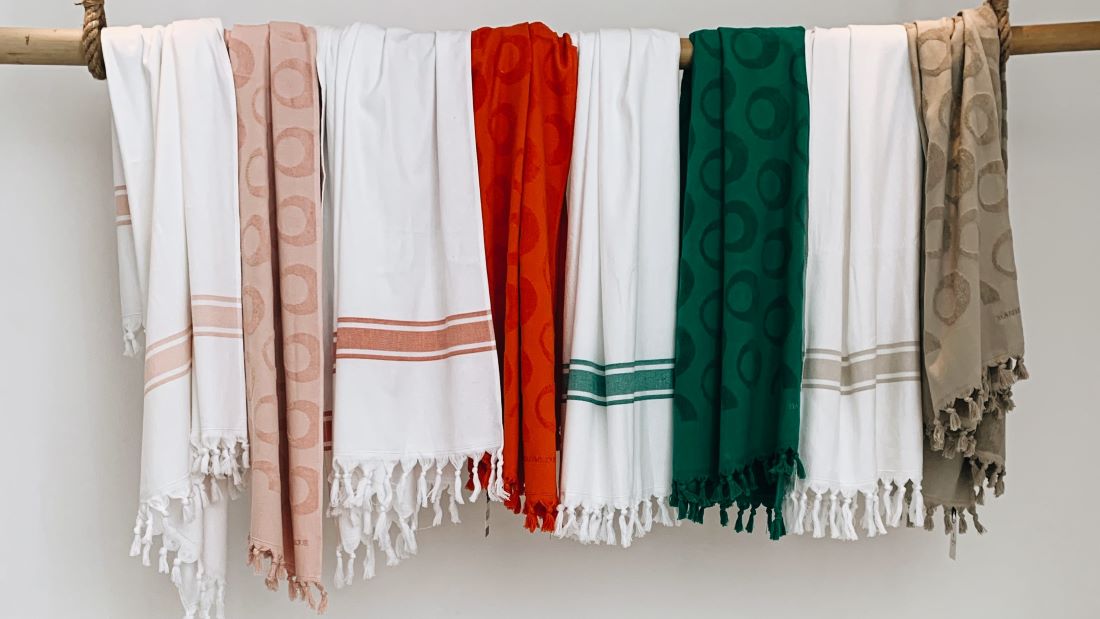Having a specific towel for when you go backpacking is very important. Don’t use a home towel that you’d normally use around the house for your backpacking adventure. Travel towels are made from a different microfibre material compared to a regular towel. Packing a regular towel will only take up too much space in that backpack filled with other important necessities. You’ll also find that having your own hand towel will help you carry less weight on your back. Ckeck these helpful tips about finding the best towel to use for backpacking trips.
Picking the Perfect Towel
Here’s what you should know about when considering the best body towel: own your own backpacking towel instead of constantly having to rent one for each trip you take. Consider the size, materials, pricing, and weight. Yes, it is possible to spend an entire day browsing at the store, but to make your search easier and quicker, do your research beforehand and ask around for different opinions.



Remind yourself that the towel does not have to stand out compared to other people’s backpacking towels. It’s not a competition. All you’re doing is preparing yourself for a nice backpacking trip. And think about what kind of trip it is. Long or short; easy or hard; single day or overnight. The weather is also important, because if it’s raining or really humid outside, on a long trip, it will be really hard to dry out your towel if you don’t choose the correct material.
You’ll need your towel to clean your sweat when it’s really hot, or to help you freshen up by a river or a spring. So how to pick your backpacking towel?
Material
- Linen: consider linen over microfiber towels. While most backpackers choose microfiber towels, some have said that they have a tougher time drying the sweat off with them. Linen works better and it prevents odors
- Cotton: it can take a long time to dry out, if you use a cotton towel for a full day. And most of them are heavier than other options
- Bamboo: dries easily, but is a bit more expensive compared to other camping towel material
- Microfiber: microfiber towels are the most readily available towels in the market. If you were to have ONE towel, go with an high quality, medium size, microfiber. They are the most manageable out of anything, thinner than a regular towel, dry quickly, have high absorbency and it’s like you won’t even know they’re in your backpack while on a trip, they are so light
- Other Synthetic Options: Pricing varies on other synthetic towel options. However, while easily dryable, most synthetic options tend to carry odor and sweat
Size



When talking about backpacking, size matters. You’ll want to pick a towel big enough for your needs, but not too big to take up too much space. Check the dimensions of each towel you look at in the store and are considering buying. It’s never a good idea to pick the first towel that meets the eye just to find out that due to its extra large size, won’t fit in your pack and turns out it is not really the towel you’re looking for.
Weight
Weight is one of the most important characteristics to pay attention to, if not the most important. Going on a backpacking trip is already strenuous because you’re hiking up rocky hills and walking under the hot sun. Carrying more than what you need over your shoulders will most definitely wear you out. Choose a towel that is very light and can fit inside your backpacking at a reach you can easily grab.
Anti-Bacterial Treatment
Some towel brands offer an anti-bacterial option, and this might be an important factor to consider. These antimicrobial treatments will prevent odors and mold to develop on your towels. They can be very durable if washed correctly and without fabric softeners, but eventually, after a few years of use, these microfiber towels will lose their anti-bacterial coating.
How to Take Care of Your Towel
Always wash your backpacking towel after a trip. Use warm or hot water and never use any fabric softeners, as they will entrap the odours in the fabric and remove any anti-bacterial coating they might have. Microfiber towels are tougher to handwash.
How about drying your backpacking towel while on a trip? The best way to dry your towel while backpacking is to place it out in the sun to let it soak out. Hang it up on the branch of a tree or on a rock, preferable using its hang loop if it has one. The microfiber towels will dry out in a heartbeat, faster than cotton ones.
Packing your towel nicely folded not only makes it as small as possible, but is also the best way to make it last longer. It would be better to have it inside your backpack, but if you know you’ll be needing it frequently, you can also attach a loop on the outside of the backpack and place the towel there. That way, you can grab the towel a lot easier instead of having to come to a full stop, put everything down, and dig through the bag messing up your organization.
More Tips
If you’re not going on hiking trips every week, make good use of your backpacking towel on the day to day life. I like to use mine for showering after a swim, for example.
Take them when you’re traveling, you never know when you’ll need one and they take almost no space at all. Camping? Use your towel as a pillow or a light blanket, it also fits perfect for a camping towel. Going to the beach? Also a good option, as they dry out so fast and most material won’t let the sand stick and it is also a perfect fit as a beach towel.



Our choices
With all the different materials and other specs to consider, which is after all the best backpacking towel? We’ll share with you our three best options, in linen, cotton and microfiber.
First we have the Handmade Washed Organic Bath Towel, made of 100% linen. Because it is a natural fiber, it doesn’t smell and the waffle weave makes it strong, durable and quick drying. It is also highly absorvent and lightweight. Being a bit on the expensive side, makes up for it with its durability, lasting longer and always in great condition. Actually, it becomes softner as it is washed more times.
Our second choice is Prewashed, Soft Original Turkish Cotton Peshtemal Towel, made of 100% turkish cotton, special because of its long fibers. These towels are machine washable up to 30º and, like the linen towel above, become softer every time. Thay are very thin and lightweight, and also superabsorbent and quick dry. It is a great option for you backpacking or hiking trips, as well as for other daily uses. It is also way cheaper than the linen towel.
Our final, and best choice for backpacking towel is actually a pack of 3 Size Set of Microfiber Towels, made of 100% microfiber, and as so are the fastest to dry, while being super absorbent and ultra compact. Lightweight, these microfiber towels can absorb 3-4 tomes their weight and dry 10 times faster than cotton towels. They also have an antimicrobial and antibacterial treatment, so you don’t have to wash them so often, and they leave no odours behind. It is a great option and still a very soft fabric, with slip-resistant hypoallergenic surface.
Final Word
There are multiple things one has to pay attention to when chosing the best backpacking towel. To find the best travel towel for backpacking, think about all your options, and what you want and need in terms of material, weight, size, and anti-bacterial treatment. It is very important to have a specific towel when you’re going on a backpacking expedition, and, most importantly, take proper care of your backpacking towel.
What did you think of these tips? Write us a line in the comments about what for you is the best backpacking towel



